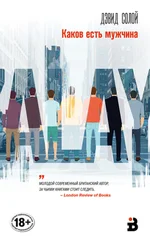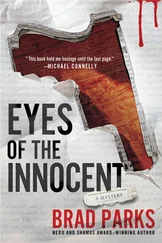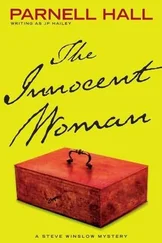And something is evidently wrong with Boris Vasilyevich’s brain. In photographs he looks haunted and hollow-eyed. Sleepless. Profoundly troubled.
Following Fischer’s extraordinary error, he won the first game, and Fischer did not even turn up for the second, thus forfeiting it. 2–0, and it was Fischer, not Boris Vasilyevich, who seemed to be psychologically disintegrating. Only a long, pleading phone-call from Henry Kissinger, it is said, prevented him from leaving Iceland.
In very strange circumstances, however, Fischer won the next game. It was played, at his insistence, in a small, stuffy room normally used for table tennis.
Once more in the main hall, the fourth game was drawn, though Boris Vasilyevich should probably have won it, and his failure to do so was ominous. Especially when Fischer won the next two games to take the overall lead. In the second of these games, he took Spassky totally by surprise by opening with c4. It was the first time in his life that Fischer had opened with anything other than e4. Spassky seemed stunned, shocked, unable to think straight, and was torn to shreds. And when, following this, he stood and joined in the applause, Aleksandr, listening in Sverdlovsk, wept at his magnanimity, and knew in his heart that the match was over. Two games later, Fischer extended his lead to 4–2.
Pleading ‘illness’, Spassky then took a few days off. Then he played a sad, desultory draw. He was in distress. When he lost the tenth game, it was even suggested in Moscow that the match might be stopped. Boris Vasilyevich himself insisted on playing on. His psychological problems seemed so severe that it surprised everyone when he won the eleventh game. The twelfth was a tense stalemate. Fischer won the next, and four more draws followed. Then Yefim Geller made his intervention, and the Icelandic police went in.
Very solemnly, they are making their report. Aleksandr turns up the volume. They say that they have found … no electronic devices. They have found nothing – nothing except, in one of the lighting fixtures … two dead flies. They invite the US and Soviet delegations to examine these flies …
He switches off the radio.
Of course there were no electronic devices. You do not need electronic devices to interfere with someone’s brain. Fischer has been interfering very effectively with poor Boris Vasilyevich’s brain for a month and a half without them. His insistence that the third game be played in the table-tennis room was the turning point. The room was not adequately soundproofed and street noise filtered in – Spassky’s people blamed his defeat on that. But it was not the street noise in itself that upset Boris Vasilyevich. It was Fischer. Since then, it has not been a matter of sport so much as pure psychological warfare, something to which Fischer’s particular type of egomania lends itself well. To be fair-minded, however, to be honest and straightforward, is an insupportable weakness. And Boris Vasilyevich is unquestionably all of those things.
Aleksandr sits down on the sofa. There is a tingle in the hinterland of his nose, his throat is tight. It will be the first time since 1948 that the world chess champion is not a citizen of the Soviet Union; then, the FIDE tournament in Moscow was won by Mikhail Botvinnik – he was not even a professional chessplayer; he was a working Soviet engineer. A sober proletarian. A Stalinist, and as steely as poor Spassky is soft.
The next morning he takes a tram to the Rastorguyev-Kharitonov Park. Empty on a weekday afternoon in early autumn – the last week of August, and suddenly there is an autumnal tone to things – it is still substantially the same as it was in 1948. The man-made lake echoing the monochrome sky, the white rotunda on the island. The trees starting to lose their leaves. It has been years since he has seen the place. He stops on the path near the water’s edge. The surface of the lake is a green so dark it is almost black; further out, the inverted world of sky and encircling trees. Was it here, on this spot, that it happened? Somewhere near here. There is no sign of it now. The place has taken no imprint from the event. He stands there for a minute – an observer might think he had lost something – and then walks on. Making his way under the trees, he finds the place where the Pobeda was parked. There are new buildings in the street, and the trees are very much larger than they were. They were small then, little more than saplings; and as slowly as the hour hand of a watch, their shadows moved. Lieutenant Ivanov started the engine and trundled the Pobeda forward until it was once more immersed in them. He turned the key. The engine hiccuped, whimpered, was silent.
Squinting out at the park, Aleksandr was aware of Ivanov’s halitosis – a surprisingly faecal smell – as he exhaled in the seat next to him. Their shoulders were more or less touching. Snapping out of momentary sleeps, he would find the sunlit park still there, the quivering shouts, Lieutenant Voronin’s floating papirosa smoke. He felt sick. He had felt sick since the previous evening.
Irina had found him lying on the divan. It was still light outside, though the room was starting to fill with shadows. ‘Are you alright?’ she said.
‘No. I feel sick.’
‘Do you?’
She started to unpack their weekly parcel from the Ministry of State Security supply store. If she seemed unsympathetic it was because they had had a fight twenty-four hours earlier and had not spoken since. In the middle of the shouting he had just left and walked the streets for an hour. Though it was eight o’clock the sun was still high in the sky. He mounted the stairs in the huge stairwell, which smelled of damp plaster even in summer, and let himself into the flat. Zalesky’s family had vacated the kitchen. Though he had not eaten all day, he was not hungry. On the floor next to the divan was a seashell with two cigarette-ends in it – Irina had smoked, and now she was asleep. Standing there in the dim silence, he looked at her inert face. It looked ugly and pallid. Her small mouth was slightly open, and there were purple shadows under her brown eyelids. Her dry hair was spread out on the stained pillow. Her thin arms were pulled up protectively in front of her …
She finished unpacking the supply parcel, and put the soap to one side. ‘Was it something you ate?’ she said.
‘Probably.’
‘What?’
‘I don’t know.’
‘If it was, it must have been something you ate at work.’ She sat on the edge of the divan and put her hand on his forehead. ‘You don’t have a fever,’ she said.
‘No.’
‘I’m sure it’s nothing. You’ll feel better tomorrow.’
He would not.
The interior of the Pobeda was infused with the smell of sweat, like an old shirt – the leather, the stained ticking, even the wood. Voronin was reading something out from the newspaper. A feature on Polina Gelman. Voronin was obsessed with Polina Gelman. He said the idea of a female fighter pilot excited him, ‘especially a Jewess’. When he had finished the feature, he turned the page. ‘ The overthrow of British imperialism in Palestine ,’ he said in his nasal voice, ‘ and the establishment there of the state of Israel, should be seen as a progressive development, supportive of the international socialist movement. It occurred with the full support of the newly formed Communist Party of Israel (previously the Palestine Communist Party), which is a leading force in the new government. The Soviet Union has recognised the state of Israel, and calls on all countries in the region to respect UN Security Council resolution 181, which partitions Palestine into two states …’
In the twilight, Irina stood up and started to prepare her supper. ‘Maybe you should eat something,’ she said. ‘Have you eaten anything today?’
Читать дальше












